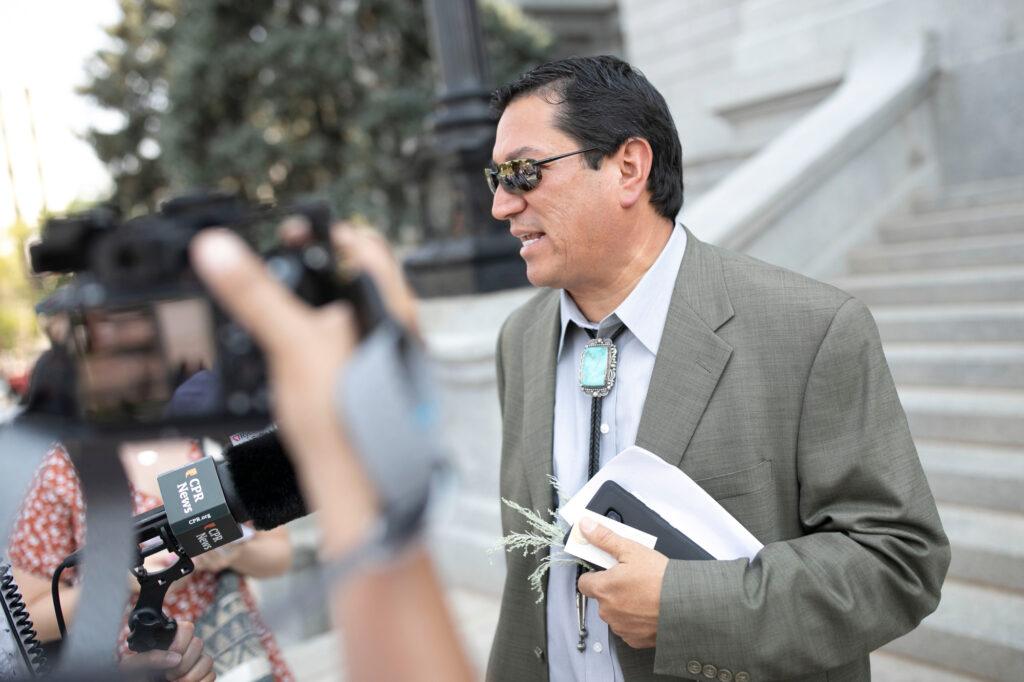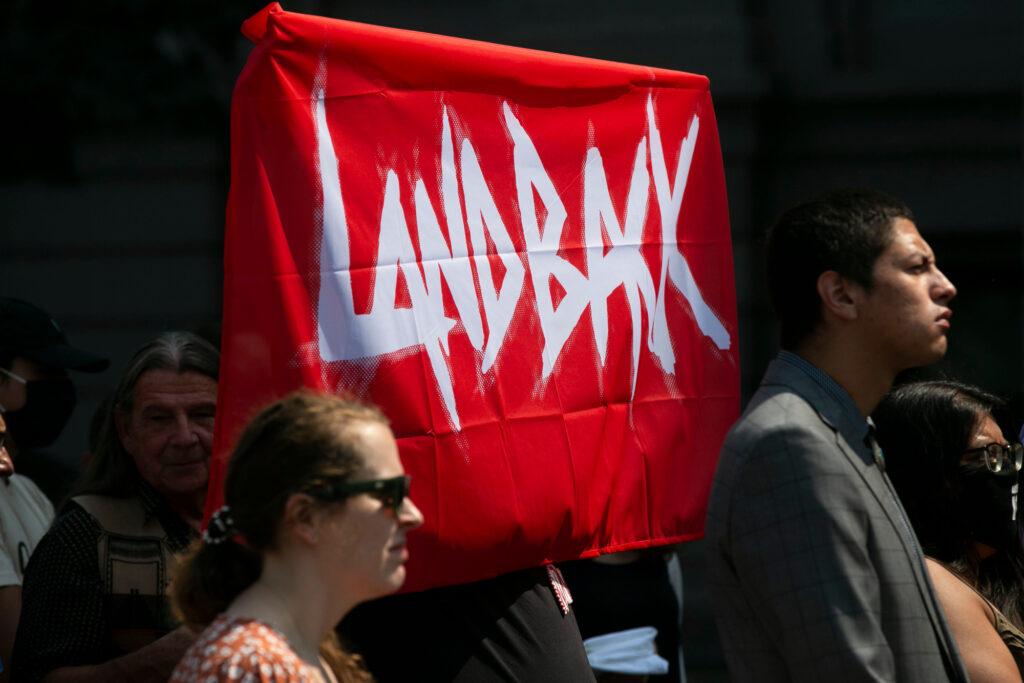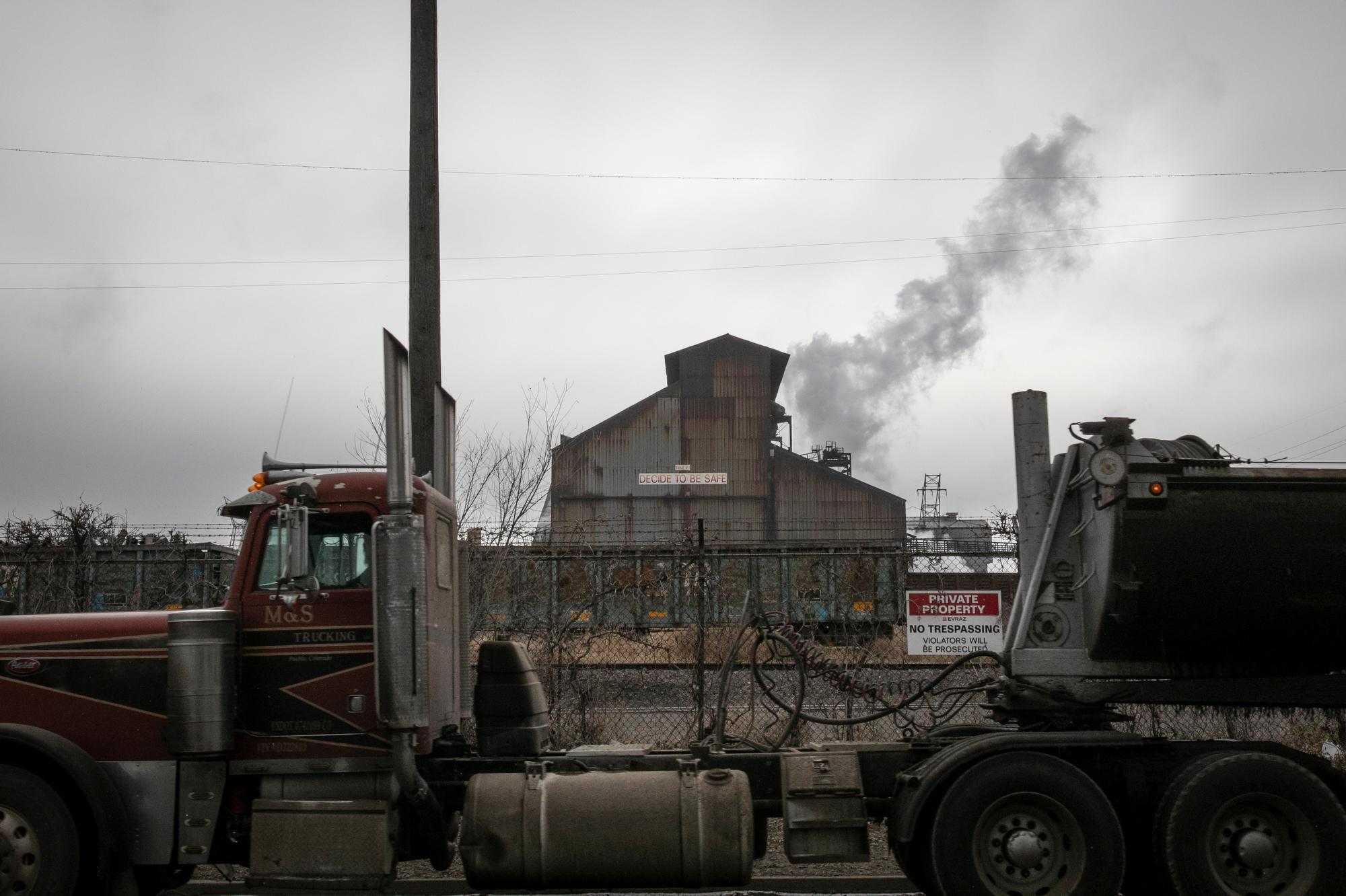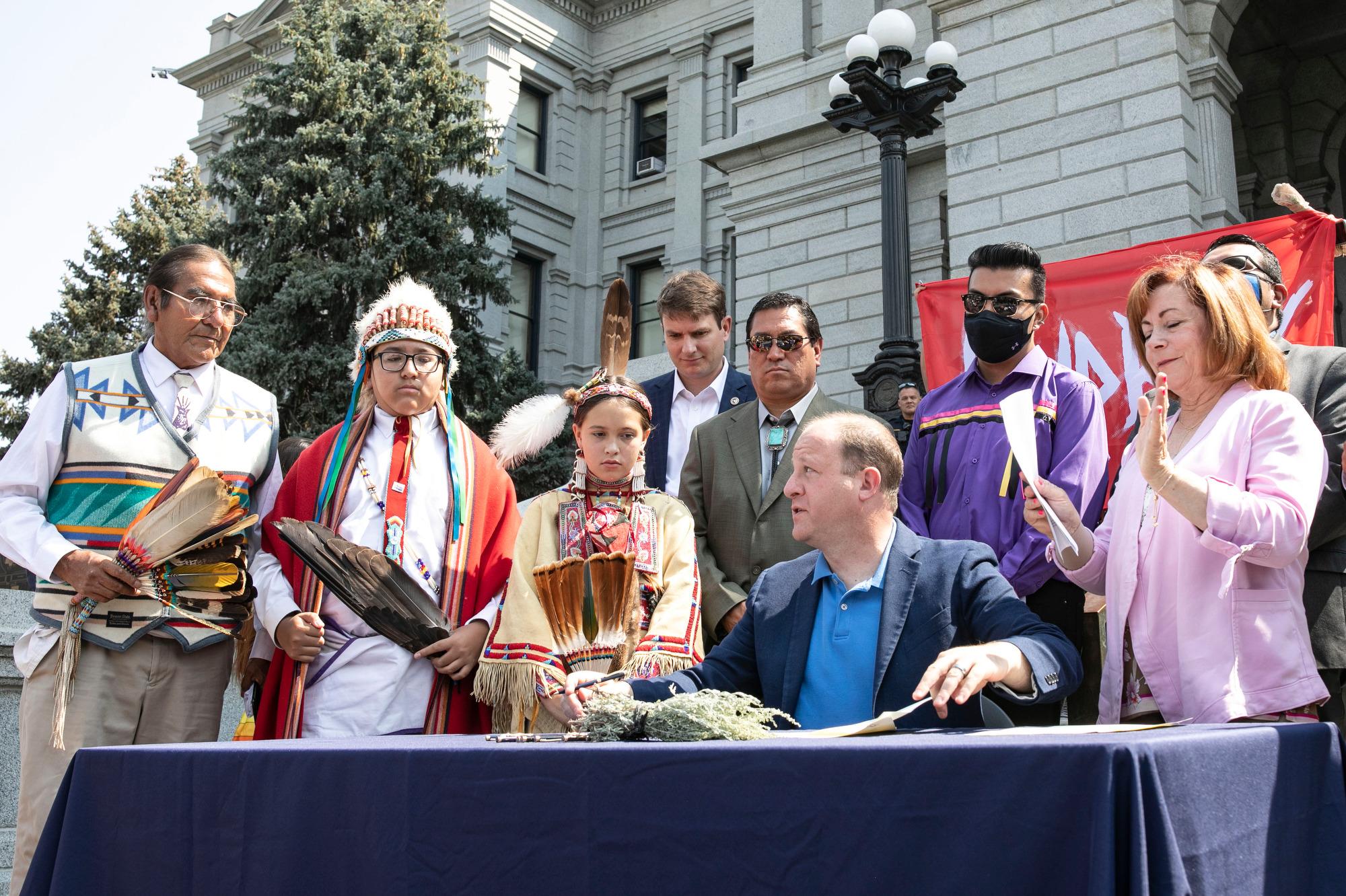
For over 150 years, official language used to start the Sand Creek Massacre was never officially revoked even after Colorado achieved statehood.
That ended Tuesday when the proclamations were officially rescinded at the Colorado state Capitol in an announcement that included Indigenous tribal leaders.
The two orders were made by former territorial governor John Evans in 1864. The first required “friendly Indians” to gather at specific camps and threatened violence against those who didn’t comply. The second called for citizens to “kill and destroy” Native Americans who were deemed hostile by the state.
On Nov. 29, 1864, U.S. soldiers attacked a village of Cheyenne and Arapaho people and killed at least 230, mostly women, children and older people. The Sand Creek Massacre is one of the worst mass murders in U.S. history.
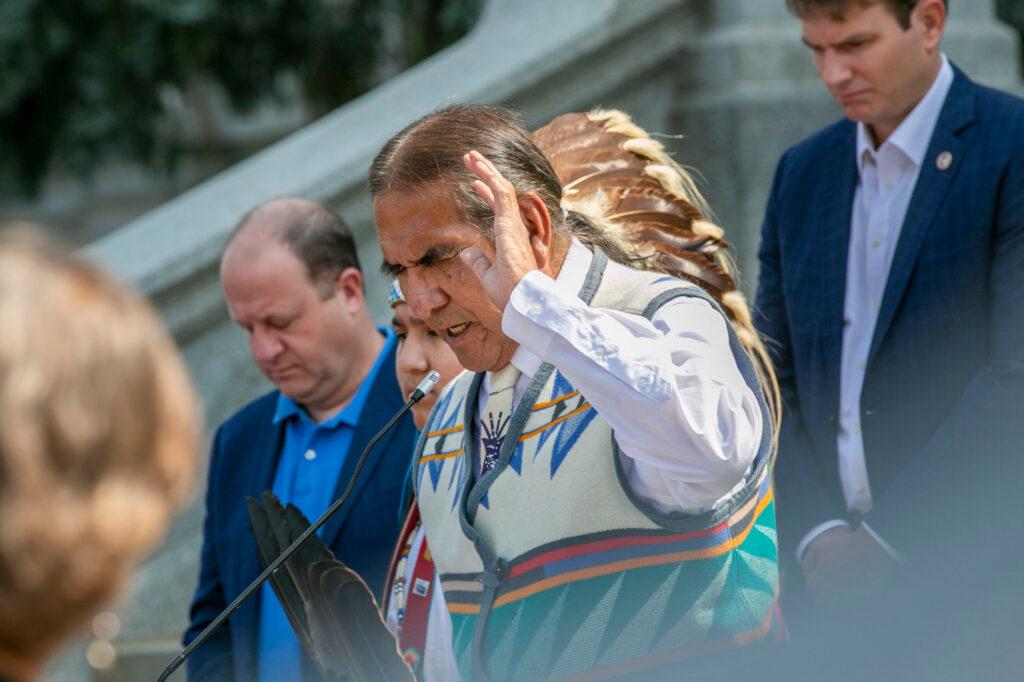
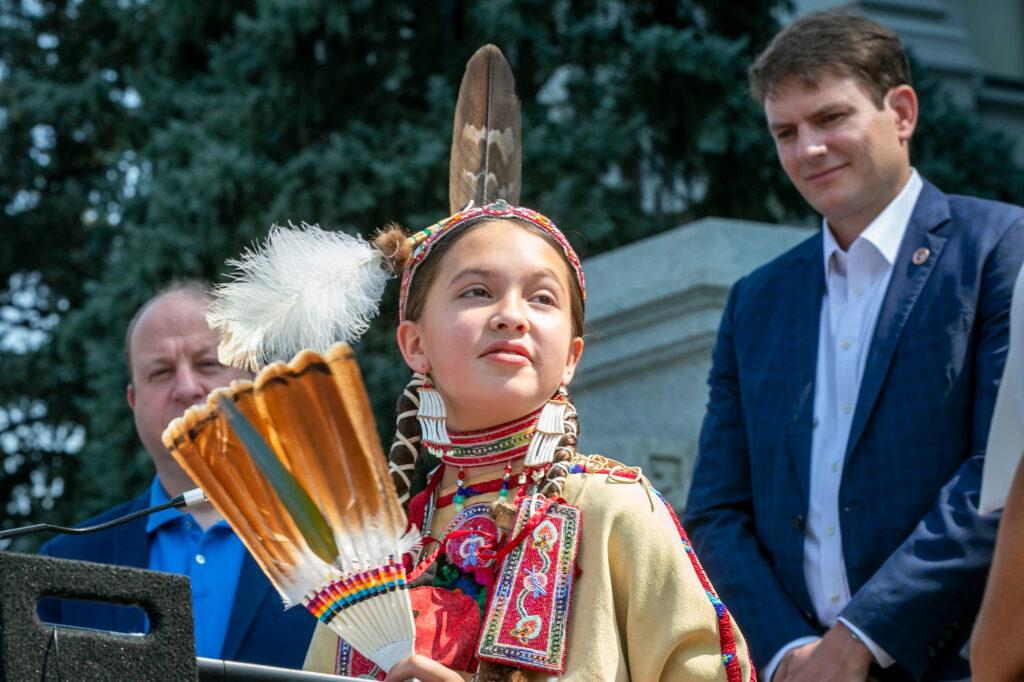
An executive order signed by Gov. Jared Polis Tuesday brought an end to the proclamations that helped spark it.
“We can't change the past, but we can honor the memories of those we lost by recognizing their sacrifice and to do better,” Polis said at the order signing ceremony.
More than 100 people, most of them affiliated with Indigenous tribes, attended the ceremony. Rick Williams, a member of the Lakota and Cheyenne tribes, described the end of these proclamations as the “end of the Colorado-Indian wars.” He said he’s been advocating for the repeal of these proclamations for years.
“I'm sad about the people that lost their lives because of this, but I'm also glad that it's over with and we're going to start healing. The healing process starts by the government being more responsible to us for what they did,” he said.
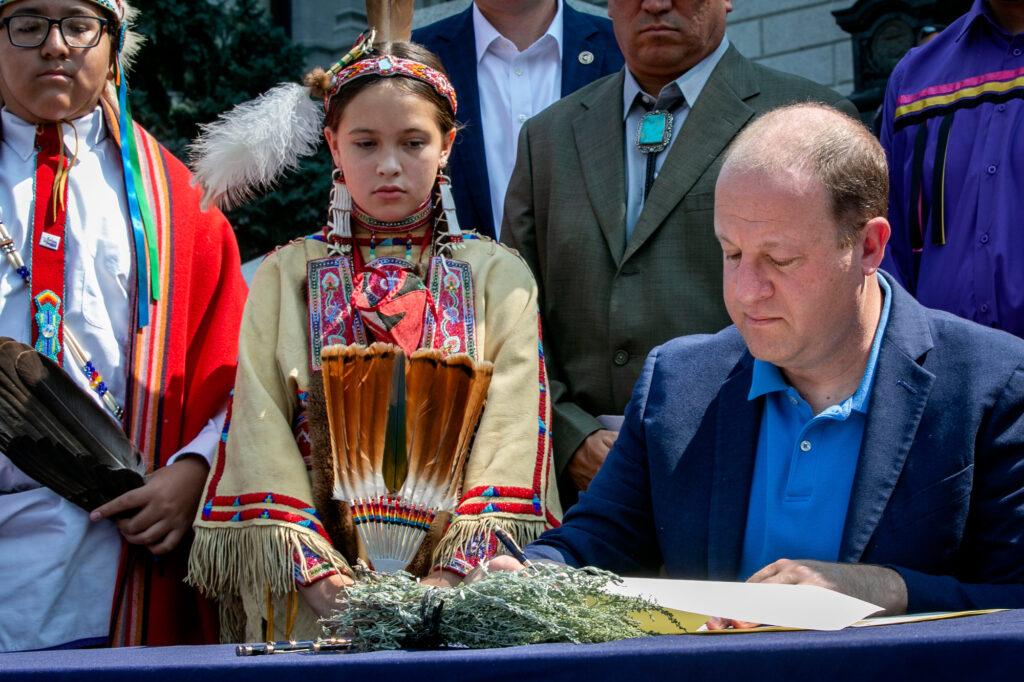
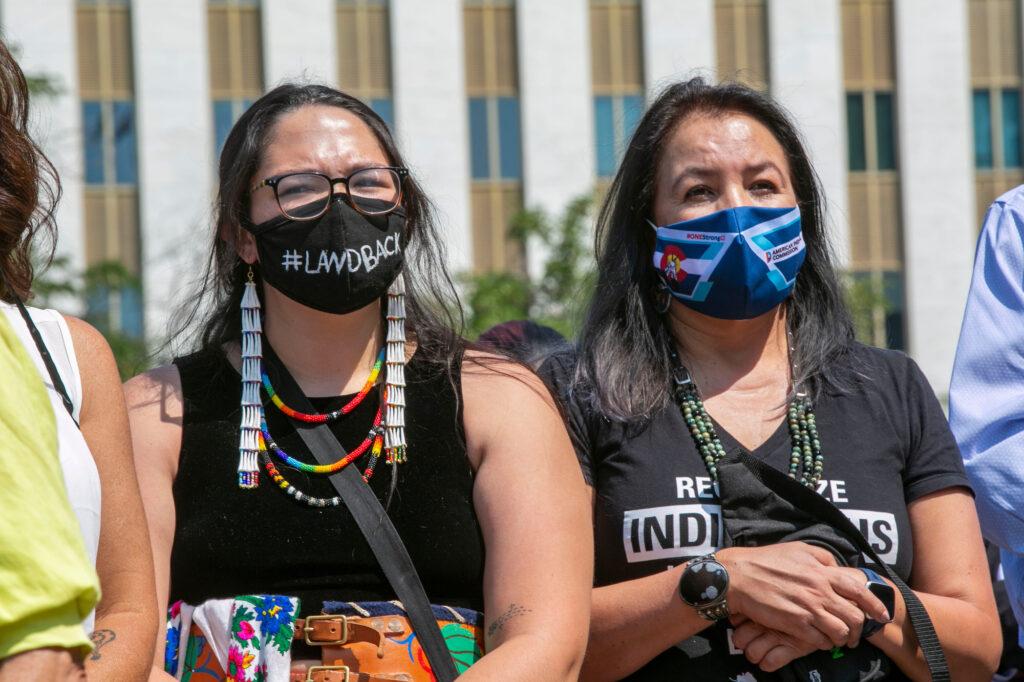
It’s been a momentous year for Colorado’s indigenous tribes, as two major bills passed through the legislature. One bans the use of offensive Native imagery or names in Colorado schools, ending a decades-long debate surrounding the issue. The other forces public universities to offer in-state tuition classification to students who are members of tribes with historical ties to Colorado.
But for many tribal leaders and activists, their work isn’t over. Colorado still needs to make good on its promise to rename Mount Evans and other geographic landmarks named after figures like Evans, who used their power to oppress Native Americans. A memorial to victims of the Sand Creek Massacre is under consideration at the state Capitol, and the state formally apologized for the massacre in 2014 on its 150th anniversary.
Reggie Wassana, governor of the Cheyenne and Arapaho tribes, said their work is noticeably easier these days, thanks to a wider awareness of issues they face.
“They become more knowledgeable and with that, they want to correct some of the wrongs that have happened, although you can't change time or history,” Wassana said. “You can only try to make amends for it.”
